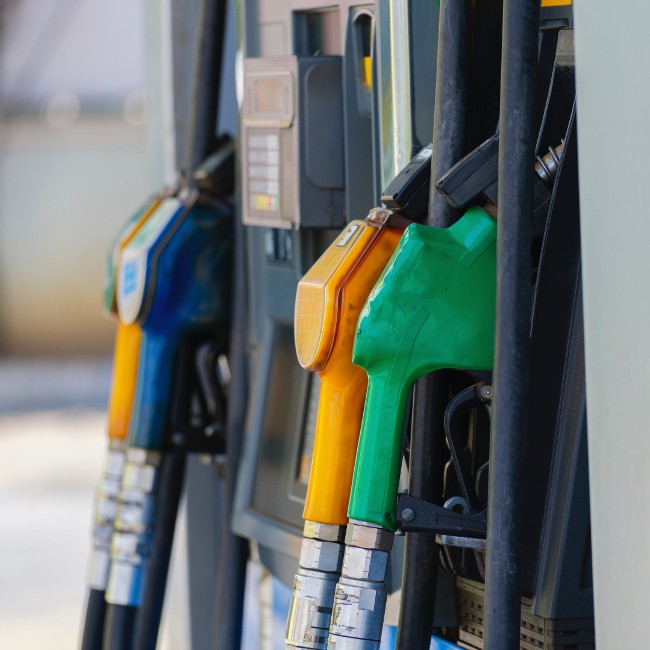What Is a Fuel Surcharge In Trucking?
Were you aware that the US trucking industry employs millions of drivers? Latest estimates state that workers in the trucking industry make up around six percent of the nation’s workforce. It’s also believed that this industry is one of the largest revenue streams for the American economy, with the trucking industry’s total revenue in 2019 reported at about $791.7 billion.
The trucking industry is single-handedly responsible for transporting 70 percent of all goods in the US. Yet, the trucking industry might not be such a tremendous source of revenue if not for introducing fuel surcharges.
After fuel spiked to more than $4.00 a gallon in 2005 following Hurricane Katrina, a fuel surcharge was incorporated into transportation and has since become widely accepted. This surcharge was implemented because the spike in fuel prices would have put the trucking industry in danger of collapsing.
Yet, despite the need for fuel surcharges, few people understand this concept since it is relatively new. This leads many to question; what is a fuel surcharge in trucking, and how does fuel surcharge work? In our article, we’re going to answer these questions and more.
What Is a Fuel Surcharge?
A fuel surcharge is a fee billed to shippers on top of the freight rate they receive. A fuel surcharge is in place to account for the diesel a trucking company or owner operator will use to haul the shipment of goods from point A to point B. By having a fuel surcharge in place, trucking companies can compensate their drivers for their fuel expenses.
In recent years, a fuel surcharge has been imperative for truck drivers, trucking companies, and owner-operators. This is because fuel prices frequently fluctuate, with some regions rising while others fall. The reimbursement surcharges ensure that these price changes don’t affect the success of national transportation companies, owner-operators, and marketplaces.

How Is a Fuel Surcharge Calculated?
Now that you know what a fuel surcharge is, you’re likely curious to find out more about how a fuel surcharge is calculated. Although it sounds complicated to determine, it isn’t overly challenging.
First, note that there isn’t a uniform way to calculate fuel surcharges, with many companies using different calculating methods. For example, UPS is known for utilizing an index-based surcharge which is adjusted every month. This surcharge is also based on the National US Average On-Highway Diesel Fuel Price reported by the US Energy Information Administration.
Ultimately, it’s up to the trucking company or owner-operator to determine its fuel surcharge formula. Fortunately, most trucking companies follow three variables when calculating fuel surcharges.
The Three Variables
- The Base Price Of Fuel
This price pertains to the fuel cost at the time the truck was booked. Carriers usually have two options available when choosing rates. They can get the rates from the Petroleum Administration for Defense Districts or the national averages from the US On-Highway Diesel Fuel Prices update.
- The Truck’s Fuel Economy
Next, carriers will evaluate the fuel economy of the truck used to transport the goods shipped. To do this, they will factor in the miles driven per gallon of fuel consumed. Yet, it’s important to note that fuel economy can change depending on the weight of the haul, the driving conditions, and the truck itself.
- The Fuel Price Change
This variable represents the fuel price change, or the updated diesel cost (dollar amount) at the time the goods were shipped. This figure is constantly changing, so it’s difficult to pinpoint.

The Calculation Method
Now that you know these three variables, we can look at the exact calculation method often used by trucking companies. First, a company will find out how much diesel costs changed by taking the original fuel price and subtracting it from the updated price.
Once a carrier has this figure amount, they will divide it by how many miles a truck does per gallon. This will give a fuel cost per mile. After this, a carrier takes the cost per mile and multiplies it by the distance traveled (including the pickup and drop-off distance).
Let’s look at a simple version of how a fuel surcharge is calculated:
- The original fuel price (-) The updated fuel price (=) Difference in fuel cost.
- The difference in fuel cost (./.) The miles per gallon (=) cost per mile.
- The cost per mile (x) The distance traveled (=) The surcharge.
By following the above steps, we can provide an example below:
- The original fuel price: $4.10
- The updated fuel price: $4.50
- The difference in fuel cost: $0.40
- The miles per gallon: 6 MPG
- The cost per mile: $0.06
- The distance traveled: 500 miles
- Fuel surcharge: $30.00
However, as said previously, this is only one way a fuel surcharge fee can be calculated. Some trucking companies will use a ratio-based system or a percentage-based system.

How Does Fuel Surcharge Work For Owner-Operators?
You’re likely now wondering; how does fuel surcharge work for owner-operators? Owner-operators calculate their surcharges similarly to trucking companies. Most will use the method we discussed above, while others could use one of the other methods we mentioned.
Usually, an owner-operator will have a set rate per mile based on a fixed fuel cost. When fuel costs rise or fall, their set rate will adjust accordingly to compensate. Many owner-operators often make more money off their fuel surcharge than the delivery payment, but this isn’t always the case as it depends on fuel economy.
Final Thoughts
Essentially, fuel surcharges are a fair market mechanism that levels the playing field for trucking companies and owner-operators. With a fuel surcharge in place, it took away some of the financial risks for truckers during times of ever-changing fuel prices.
Yet, we understand that a fuel surcharge can be difficult to understand. That’s why our team at Pillow Logistics is ready and waiting to answer questions you may have about fuel surcharges. Contact us here, and our logistics team will get back to you.

